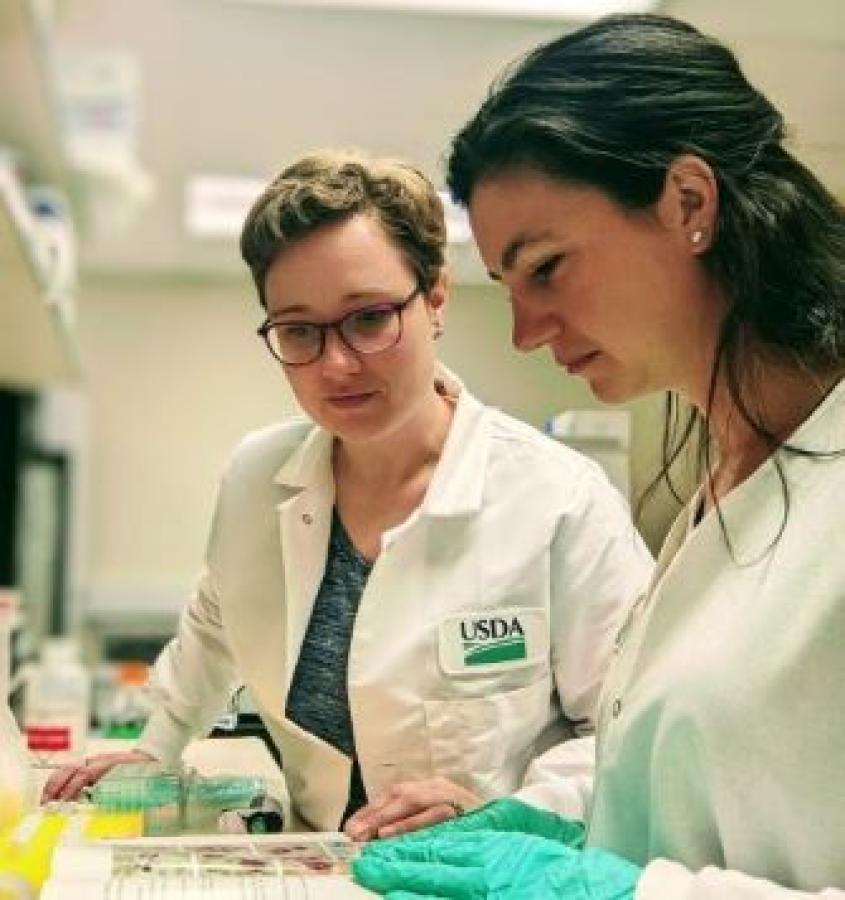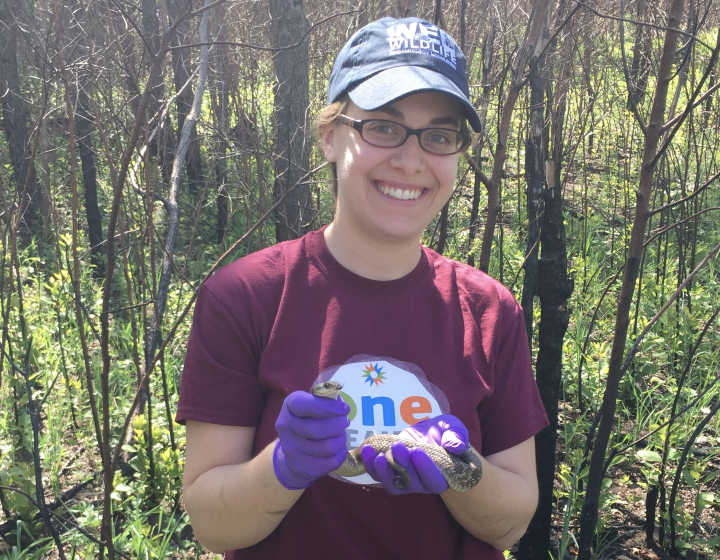Morgan Hulbert, D.V.M. '24, reflects on USDA Veterinary Scholars program
They started the summer with hopes of gaining exposure to the day-to-day work of researchers at the forefront of monitoring detection and prevention of zoonotic diseases, advances in agricultural science and wildlife conservation. But by the end of their summer program, they gained far more experiences and insights than they imagined.
Twelve talented and curious veterinary students from leading veterinary schools across the US were the first cohorts in a multi-year collaboration between the U.S. Department of Agriculture’s Agricultural Research Service (ARS) and the Boehringer Ingelheim-sponsored Veterinary Scholars Program.
Over the course of this summer, these students had the opportunity to work directly with USDA scientists at eight ARS sites across the country, researching diseases that could affect livestock, and public health, as well as advancing sustainable approaches for agriculture and food production.
Boehringer Ingelheim and USDA covered all expenses for the students, including a monthly stipend and transportation to and from their schools to the USDA centers. Students also were given the special opportunity to present their research at the 2022 National Veterinary Scholars Symposium held in early August.
Morgan Hulbert, now a third-year veterinary student at Cornell University, was looking forward to learning more about theileriosis, an emerging threat to horses and livestock, and the opportunity to spend some time in the Pacific Northwest. Under the direction of USDA veterinarian and scientist, Dr. Lindsay Fry, Morgan helped explore the susceptibility of Theileria parasites to various drugs. Theilerioses are a group of tickborne diseases caused by protozoan parasites, which are more commonly found in tropical and subtropical regions of the world.
Not only did Morgan have the chance to contribute to research that may help limit the spread of this deadly disease, she worked side-by-side with other researchers in the lab and learned about different career pathways. Her mentor, Fry, who also serves as an adjunct professor at Washington State University, and began her own career in clinical practice and has firsthand experience with the many career options in veterinary medicine and infectious disease.
“This experience both expanded and refined my thinking around a career path. Infectious disease research is a huge field, and now I have a better sense of opportunities within the field and appreciation that the career pathway does not have to be so direct and narrow,” Hulbert reflected.
“I also saw firsthand the importance of balancing both the long-game mindset and hitting near-term milestones in research, and the implications that short-term actions and developments can have on your ultimate conclusion.”
The learning and benefits were not unidirectional, Fry observed. “Morgan really brought a lot of energy and enthusiasm to the lab. Students ask the most amazing questions that make us think in a different way, and everyone in the lab appreciated that fresh thinking and unbiased viewpoint.”





